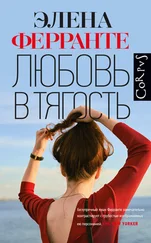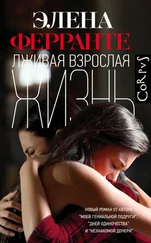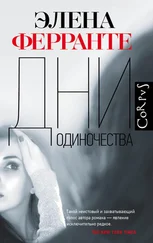18.
That second encounter with Roberto confirmed to me that I remembered almost nothing of the first. I finally stood up, he was several steps behind Giuliana. He seemed very tall, over six feet, but when he sat down he folded himself in as if he were piling up all his limbs and compressing them on the chair so as not to seem hulking. I had in mind a man of average height and yet here he was, powerful yet small, a person who could expand or shrink at will. He certainly was handsome, much more than I remembered: black hair, broad forehead, sparkling eyes, high cheekbones, chiseled nose, and the mouth, oh the mouth, with regular white teeth that were like a patch of light on his dark skin. But his behavior disoriented me. For most of the time we spent at that table he exhibited not a single one of the gifts as a speaker that he had displayed in church and that had made such a deep impression on me. He resorted to brief remarks, to barely communicative gestures. Only his eyes were those of his talk before the altar, attentive to every detail, slightly ironic. Otherwise I got the idea of one of those shy teachers who emanate good humor and sympathy, don’t make you anxious, and not only ask their little questions politely, with clarity and precision, but, after listening to the answers without interrupting you, without commenting, say with a kind smile: you can go.
Unlike Roberto, Giuliana was nervously talkative. Introducing us to her fiancé, she bestowed on each of us an abundance of wonderful qualities, and, although she was sitting in the shade, seemed luminous as she spoke. I forced myself to ignore the bracelet, even though I couldn’t help every so often seeing it sparkle on her slender wrist and thinking: maybe that’s the magic source of her light. Not her words, they were opaque. Why is she talking so much, I wondered, what’s worrying her, certainly not our beauty. Contrary to my predictions, Angela, while she was certainly as pretty as usual, hadn’t overdone it with her clothes: her skirt was short but not too short, she wore a tight shirt but not low cut, and though she flashed smiles, and appeared self-assured, she did nothing especially seductive. As for me, I was a sack of potatoes—I felt I was, I wanted to be , a sack of potatoes—gray, compact, the protrusion of my bosom buried under a jacket, and I managed very well. It surely wasn’t our physical aspect that worried her, since there was no competition between her and us. I was convinced instead that what made her anxious was the possibility that we wouldn’t be up to it. Her declared intention was to show us off to her fiancé as her friends from good families. She wanted him to like us because we were girls from the Vomero, high-school students, decent people. In other words she had summoned us there to bear witness to the fact that she was eliminating Pascone from herself, she was preparing to live respectably with him in Milan. And I think it was that—not the bracelet—that intensified my irritation. I didn’t like being put on display, I didn’t want to feel the way I did when my parents would make me show their friends how good I was at doing this, at saying that, and, as soon as I saw that I was obliged to be at my best, I became obtuse. I sat silently, my head empty, I even looked ostentatiously at my watch a couple of times. The result was that Roberto, after a few polite remarks, ended up concentrating on Angela in classic professorial tones. He asked her: how is your school, what condition is it in, do you have gym, how old are your teachers, how are their classes, what do you do in your free time, and she talked, on and on, in her confident little student’s voice, and smiled, and laughed, saying amusing things about her classmates, her teachers.
Giuliana not only listened with a smile but often intervened in the conversation. She had moved her chair close to her fiancé’s, occasionally she rested her head on his shoulder, laughing loudly when he laughed softly at Angela’s witty remarks. She seemed more serene, Angela was doing well, Roberto didn’t appear to be bored. After a while he said:
“Where do you find the time to read?”
“I don’t,” Angela answered. “I used to read when I was a child but not anymore, school eats me alive. My sister reads a lot. And she does, too, she reads.”
She indicated me with a gracious gesture and a look of affection.
“Giannina,” said Roberto.
I corrected him scowling:
“Giovanna.”
“Giovanna,” said Roberto, “I remember you well.”
“It’s easy, I’m just like Aunt Vittoria.”
“No, that’s not why.”
“Then why?”
“I don’t know, but if I think of it I’ll tell you.”
“There’s no need.”
And yet there was a need, I didn’t want to be remembered because I was slovenly, ugly, grim, locked in a presumptuous silence. I fixed my eyes on his, and since he looked at me with friendliness and that encouraged me—it was an inane friendliness, gently ironic—I forced myself not to look away, I wanted to see if the kindness gave way to annoyance. I did it with a persistence that until a moment earlier I didn’t know I was capable of, even blinking would have seemed like giving in.
He continued in the tone of a good-humored professor, he asked how school left me time to read and not Angela: did my teachers not give much homework? I said darkly that my teachers were trained beasts, they recited their lessons mechanically and equally mechanically gave such a quantity of homework that if we students had given it to them, they would never have gotten it done. But I didn’t worry about homework, I read when I felt like it, if a book gripped me I would read day and night, I didn’t care about school. What do you read, he asked, and since I answered vaguely—at my house there’s nothing but books, my father used to make suggestions, but then he left and I choose myself, every so often I pull one out, essays, novels, what I feel like—he insisted that I name at least a few titles, the most recent I had read. So I answered: the Gospels, lying to make an impression, that reading had been several months earlier, now I was reading something else. But I had so much hoped that that moment would arrive and in case it did I had written down all my impressions in a notebook just so I’d be able to list them for him. Now it was happening, and suddenly, with no hesitation, I went on talking, continuing to look him in the face with feigned calm. In reality I was furious inside, furious for no reason, or worse, as if it were precisely the texts of Mark, Matthew, Luke, and John that were making me angry, and the anger erased everything around me, the square, the newspaper stand, the entrance to the metro, the bright green of the park, Angela and Giuliana, everything except Roberto. Finally, I stopped and looked down. I had a headache, I tried to control my breath so he wouldn’t notice that I was panting.
There was a long silence. Only then I realized that Angela was looking at me with pride in her eyes—I was her childhood friend, she was proud of me, she was saying it without words—and I drew strength from it. Giuliana, on the other hand, clung to her fiancé, staring at me in bewilderment, as if there were something unseemly about me and she wanted to warn me with a look. Roberto asked me:
“So you think the Gospels tell a terrible story?”
“Yes.”
“Why?”
“It doesn’t work. Jesus is the son of God, but he performs pointless miracles, he lets himself be betrayed and ends up on the cross. Not only: he asks his father to spare him the cross, but his father doesn’t lift a finger and doesn’t spare him any torment at all. Why didn’t God come himself to suffer? Why did he dump the poor performance of his own creation on his son? What is doing the will of the father—draining the cup of torments to the dregs?”
Читать дальше
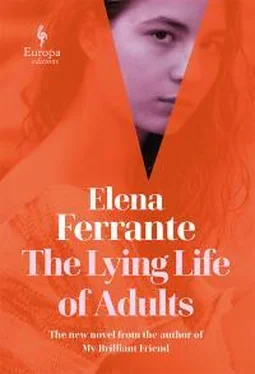
![Элена Ферранте - История о пропавшем ребенке [litres]](/books/32091/elena-ferrante-istoriya-o-propavshem-rebenke-litres-thumb.webp)
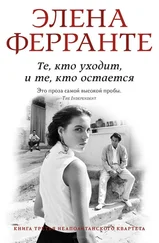
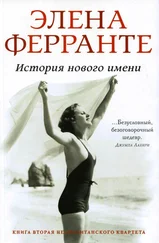
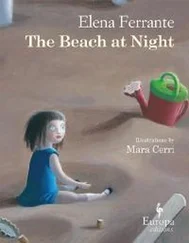
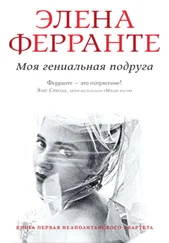
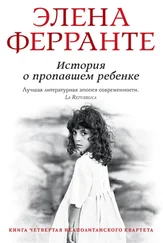
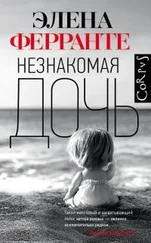
![Элена Ферранте - Дни одиночества [litres]](/books/404671/elena-ferrante-dni-odinochestva-litres-thumb.webp)
